Soluciones
La gama de negocios de construcción de caballos se extiende a todo el mundo y sirve a miles de clientes con productos, orientación técnica especializada en construcción, y somos testigos del reinicio de la marca china con ellos.
The bridge structure in the tension side with the reinforcement method of epoxy resin bonded CFRP materials, has simple construction, low cost of strengthening (instead of steel reinforcement can save money 25 %), does not reduce the clearance under the bridge reinforcement materials
The FRP composite material with high strength and high elastic modulus (referred to as FR P) is a physical composite material composed of two or more component materials, such as base material and reinforcement, on a macro scale.
Depending on the substrate material can be divided into carbon fiber composite materials (CFRP), glass fiber composite materials (GFRP) and aramid fiber composite materials (AFRP), can be seen from table 1, the physical and mechanical properties of carbon fiber composite material is superior to the other two, so the international engineering circles from the late 1980s to start the as a substitute of prestressed steel reinforced, to study, and will have its PC as a bridge stretching material, the wall of the building materials, the existing bridge reinforcement materials etc..
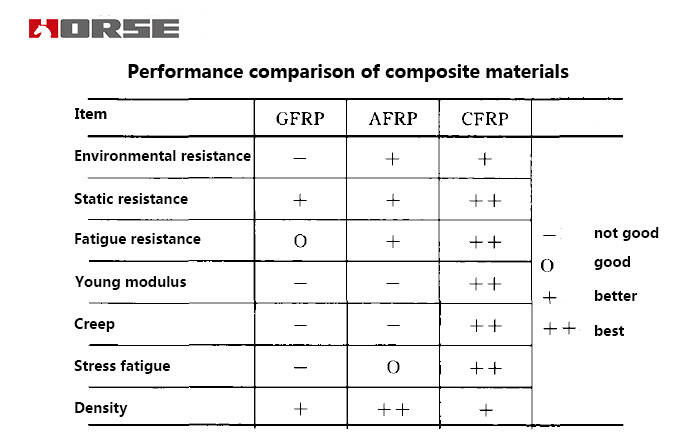
The following are some of the unique properties that are different from the steel.
(1) CFRP has a tensile strength of more than ten times higher than that of steel and 1~2 times the elastic modulus of the equivalent steel.
(2) CFRP has good damping performance and high vibration frequency. It can avoid early resonance, and the internal resistance is very large. Once the shock is excited, the attenuation is fast.
(3) CFRP has good durability, oil resistance, acid resistance and corrosion resistance, and has good compatibility with the organism. In addition to strong oxidizing agents, they are generally not available as concentrated hydrochloric acid, 30 sulfuric acid, and alkali.
(4) CFRP material is soft, and the resin can flow. The shape of its product is almost unlimited, and it can also be colored arbitrarily, so as to achieve a highly unified structure form and material aesthetics.
(5) CFRP material is convenient for construction. In structural reinforcement, CFRP is easy to form and can be pasted on curved surface or irregular structural surface. Considering its directivity, designers can tailor it to make it in.The desired design intensity is achieved in a specific direction.
The application of CFRP to bridge engineering began at the end of 1970s and in the early 80s. The United States, Bulgaria, Israel, Japan and China have been used. The excellent properties of carbon fiber composites provide a broad prospect for the application of carbon fiber composites in large span bridges.
Japan is the first country to use the CFRP strand in concrete bridges as the prestressed tendons of the bridge. In 1988, the CFRP strand was first used as a prestressed tendon on the first pretensioned prestressed concrete highway bridge in Ishikawa County, the No. 249 national road of Japan. The broken area of the CFR P strand used for the bridge is 76 m m. The weight is 158 kg / km, and the modulus of elasticity is 1.32 * 10 ~ 1.47 * 10 M Pa.
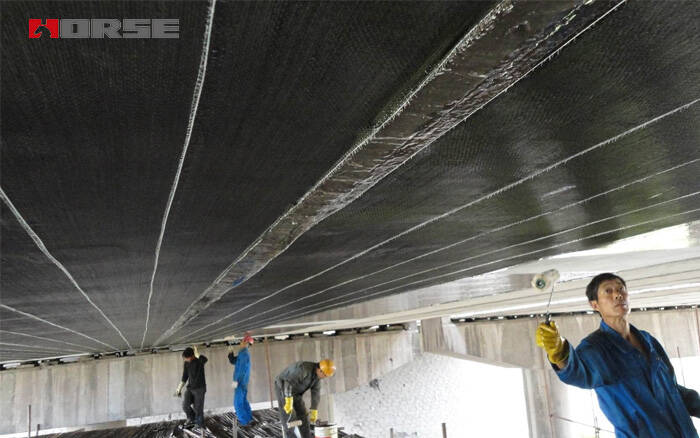
To restore and increase both the bearing capacity of the bridge. The bridge structure in the tension side with the reinforcement method of epoxy resin bonded CFRP materials, has simple construction, low cost of strengthening (instead of steel reinforcement can save money 25 %), does not reduce the clearance under the bridge reinforcement materials and bring the advantages of constant load does not increase too much, and strengthening construction can not affect or influence the use of less structure, at the same time can be overcome by sticking steel plate. The limitation of the length of transportation and the corrosion of steel plate cause the defects of the damage of the bonding layer between the steel plate and the concrete beam.
Puede encontrar cualquier cosa que necesite, confíe en probar estos productos y encontrará la gran diferencia después de eso.
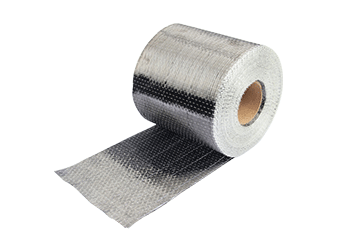
Tejido de fibra de carbono unidireccional de alta resistencia para refuerzo de compuesto de polímero reforzado con fibra (FRP).
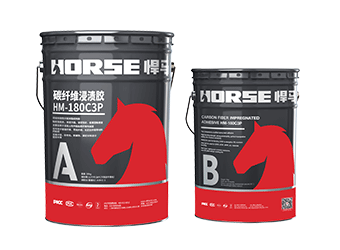
Impregnación y pasta de componentes reforzados de superficie y productos de fibra.
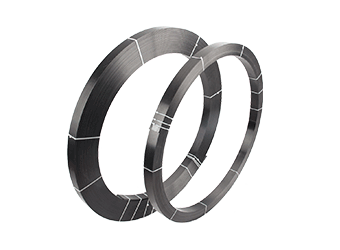
Lámina de fibra de carbono pultruída para reforzamiento de estructuras